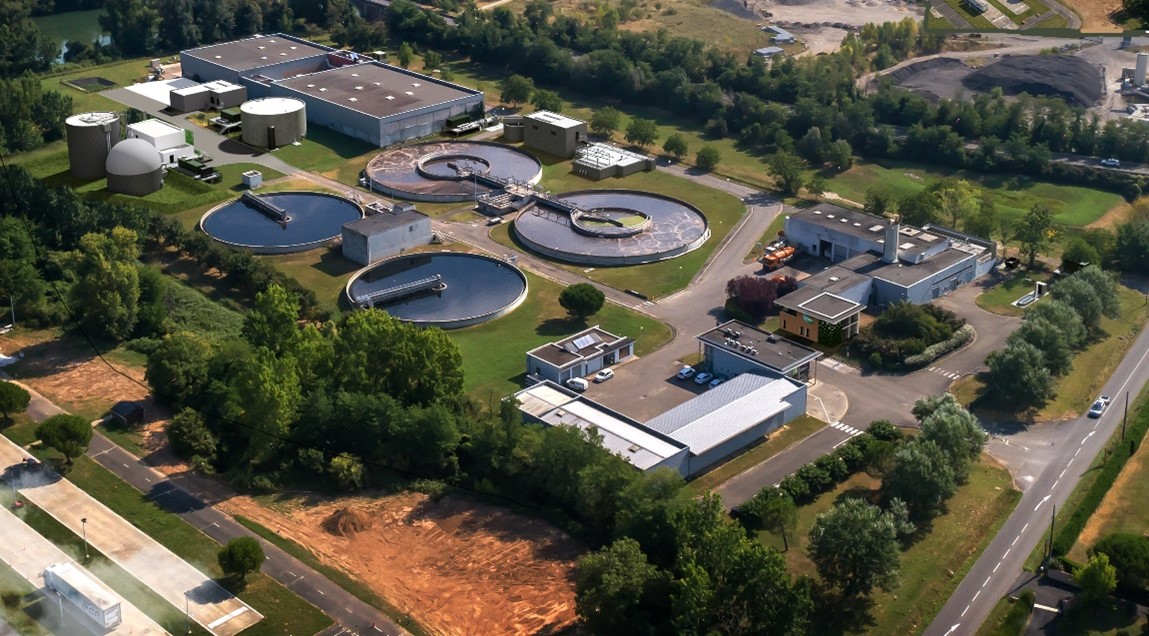Decarbonizing our activities by transforming wastewater into green energy

For local authorities, converting wastewater treatment plant sludge into biogas is a major lever for reducing sludge volumes, minimizing their environmental footprint and meeting regulatory requirements.
The methanization of sludge from wastewater treatment plants offers an alternative to fossil fuels and a new source of revenue, whether through on-site reuse of the energy produced or sale of the same energy to the GrDF network.
By treating the organic matter contained in our wastewater to transform it into biogas and then into biomethane that can be injected into the natural gas network, methanization helps to decarbonize wastewater treatment facilities. Stereau has already implemented this technology at the Aubenas (Ardèche) and Saint-Etienne (Loire) wastewater treatment plants. In Montauban, the future Verdié wastewater treatment plant will be home to a methanization unit from 2024, enabling the injection of 5 GWh/year of biogas into the municipal gas network, equivalent to the annual consumption of 1,200 low-energy households in the Greater Montauban area.
Turning CO2 into a resource: the benefits of biological methanation
While anaerobic digestion focuses on breaking down organic matter to produce biogas, biological methanation adds an additional step by using carbon dioxide (CO2) and hydrogen (H2) to produce methane (CH4) through the action of specific microorganisms. This method not only valorizes CO2, a greenhouse gas, but also improves the quality of the produced biogas by increasing its methane content.
For municipalities, this technological advancement presents multiple advantages. Biological methanation optimizes resource utilization by producing more methane from the same amount of raw materials. It contributes to the reduction of CO2 emissions by capturing this gas and transforming it into useful energy. This technique can also be integrated into existing anaerobic digestion facilities, thus increasing biomethane production.
Thus, biological methanation represents a significant advancement for municipalities. By integrating this technology, they can maximize the valorization of sludge, further reduce their carbon footprint, and increase their energy autonomy.

